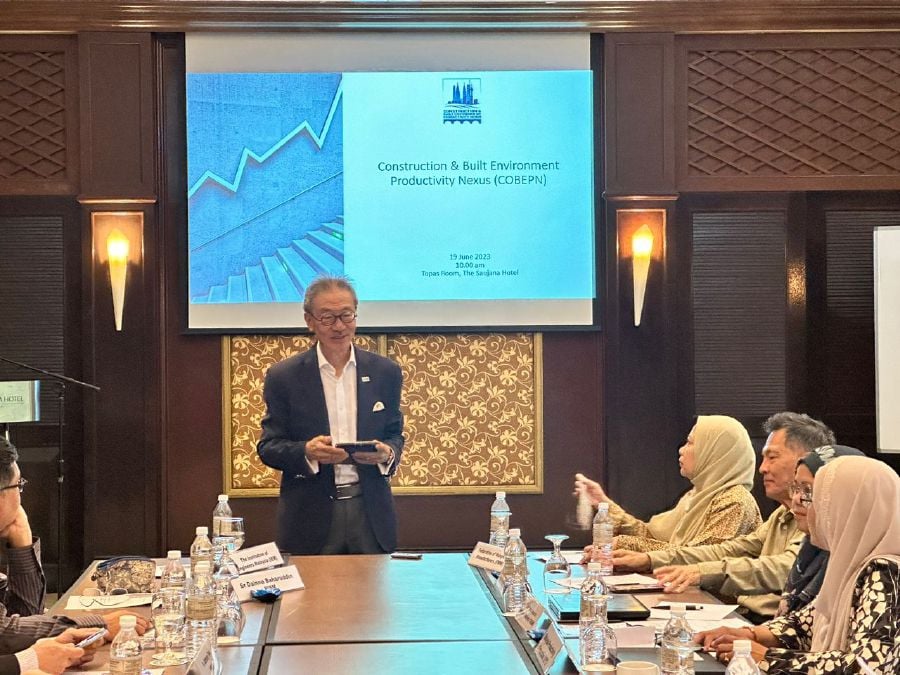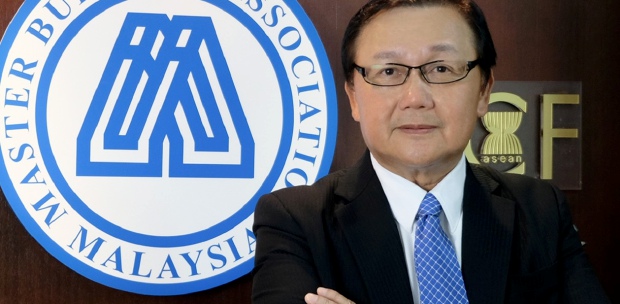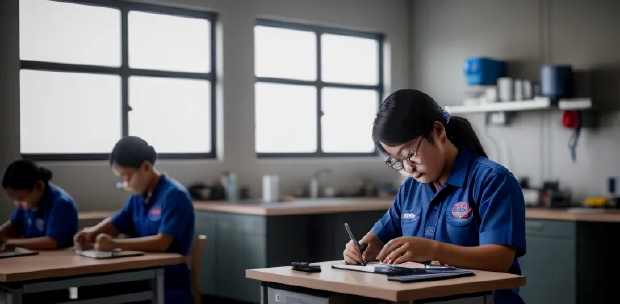The construction sector is a significant contributor to Malaysia's economy, accounting for 3.4 per cent of the country's gross domestic product and providing employment opportunities for at least 1.38 million people.
It is currently regarded as one of the most influential and critical drivers of the country's economic landscape.
Despite its economic significance, the sector faces a number of challenges, coping with issues such as slow productivity growth, heavy dependence on foreign labour environmental degradation and the generation of excessive waste.
In response to these pressing concerns, the government and industry stakeholders through the Construction and Built Environment Productivity Nexus (COBEPN) are gearing up for a paradigm shift.
COBEPN's mission is to spearhead a transformative journey that strategically integrates digitalisation, innovation and sustainability to reshape Malaysia's construction paradigm with support from Malaysian Institute of Architects, Master Builders Association Malaysia, Institution of Engineers Malaysia, Chartered Institute of Building Malaysia, Real Estate and Housing Developers' Association Malaysia, Malaysian Institute of Planners, Royal Institution of Surveyors Malaysia, Federation of Malaysian Manufacturers and related ministries and agencies.
This powerful governance indicates the seriousness of the government to improve the productivity and transform the construction industry, especially in compliance with the environmental, social and governance (ESG) targets and net zero carbon aspirations.
The Nexus recognises the constraint to surpass conventional boundaries and embrace a holistic strategy that considers the entire lifecycle of construction projects.
COBEPN Nexus Champion, Datuk Seri Dr Michael K.C. Yam, said Malaysia should have a strategic perspective on enhancing productivity that goes beyond the construction phase.
He added that COBEPN was exploring the circular ecosystem that encompasses all the stages in construction and built environment that emphasises all the elements that influence the sector's efficiency.
This comprises various project development phases, including vision and client's wish, concept, design and approval, procurement and construction, operations and management, and finally the end-of-life phase.
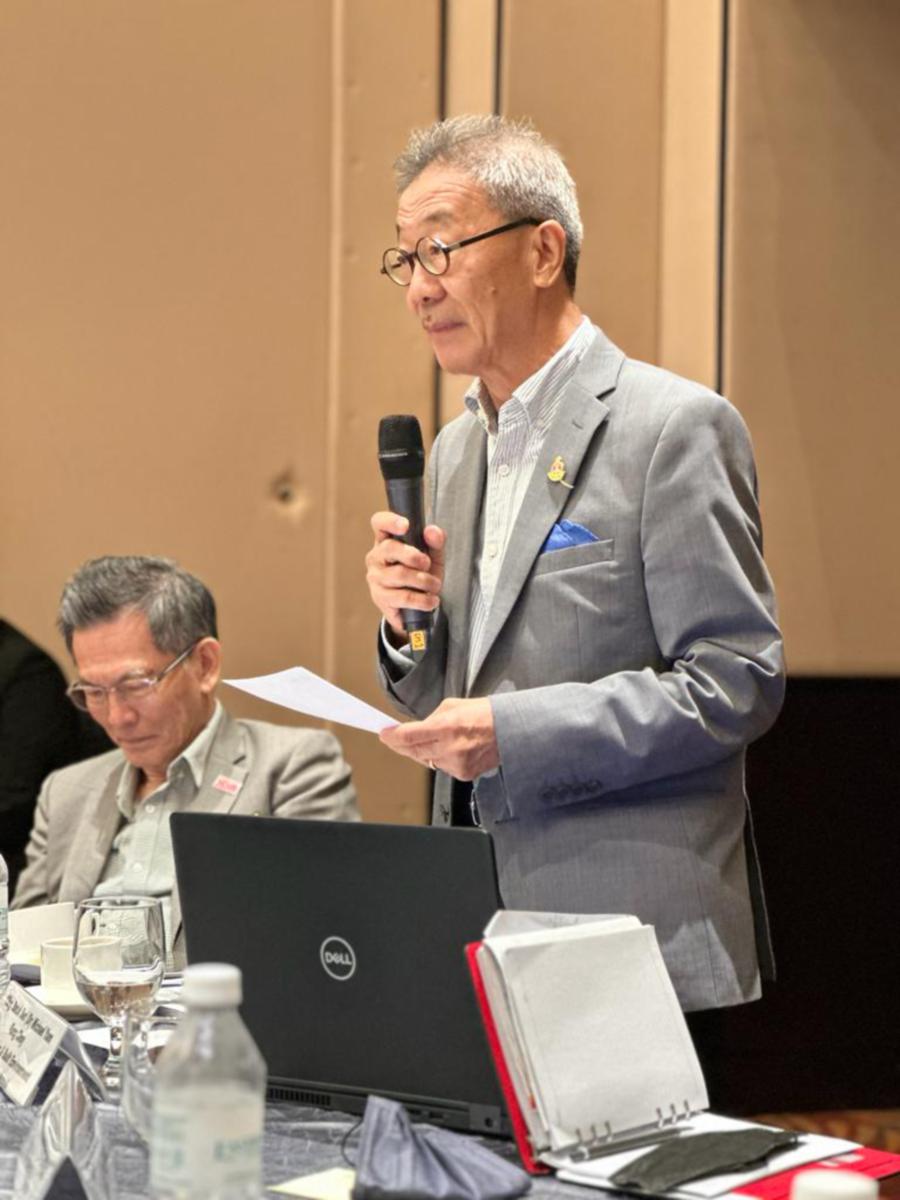
Each phase is important as they collectively shape the sector's efficiency and sustainability.
This holistic strategy not only addresses the immediate challenges faced by the construction industry but also aligns with global trends in sustainable development.
By considering every facet of the construction lifecycle, Malaysia aims to unlock the full potential of the sector, ensuring it becomes a beacon of sustainability and efficiency on the global stage.
It explores key factors influencing the construction sector's adoption of technology, innovation and digital transformation.
COBEPN recognises that sustainable growth in the industry requires a comprehensive understanding of the interconnected elements that shape the construction ecosystem.
Malaysia Productivity Corporation (MPC) director-general, Zahid Ismail, emphasised the important role of technology in driving efficiency and productivity growth, labelling it as the primary catalyst for improved productivity.
He added that enhancing productivity serves as a key driver for success, enabling accelerated project completion, cost reduction and in the end increased profitability.
In line with MPC's commitment, strategic programmes such as the Step-Up Programme and the Digital Acceleration for Learning and Industry Adoption have been introduced.
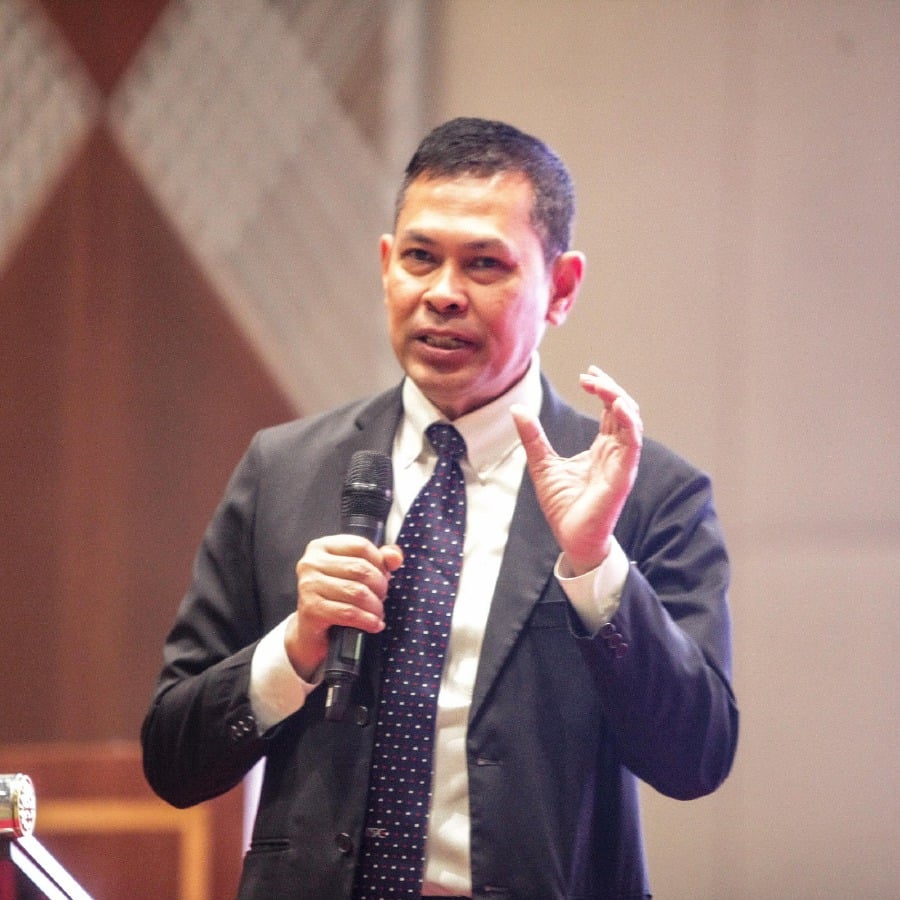
These initiatives serve as timely catalysts, propelling towards fostering innovation and sustainability, enhancing technology adoption and promoting operational excellence across construction companies.
Zahid highlighted the transformative power of technology in driving productivity growth, echoing MPC's dedication to facilitating the seamless integration of advanced technological solutions across diverse industries, including construction.
As Malaysia embarks on this transformative journey, stakeholders across the construction sector are called upon to embrace innovation, digitalisation and sustainability.
The collective effort to address challenges and capitalise on opportunities will position the construction sector as a leader in efficiency, productivity and sustainable development.
In conclusion, the construction sector stands at a crossroads, poised for transformative change.
The strategic initiatives led by COBEPN, with the support of all stakeholders, signify a combined effort to redefine the sector's trajectory.
The holistic strategy, emphasising the circular ecosystem and embracing technology and sustainability, charts a course towards a future where Malaysia's construction industry not only meets contemporary challenges but emerges as a model for global best practices.
The collaborative vision is set to propel the construction sector into an era of sustainable growth, increased productivity and enduring success.



